
The Institute of Source Studies (Instytut dzhereloznavstva; ISS) at the Shevchenko Scientific Society is an inter-sectional structure established in 2010 according to the Statutes of the Society for the purpose of facilitating and developing the study and especially the publication of sources relating to Ukrainian literature, philology, history and culture broadly speaking. In this the Institute follows in the tradition of the original Shevchenko Scientific Society founded in Lviv, Ukraine, in the late 19th century, and especially under the leadership of such eminent scholars as Mykhailo Hrushevskyi , Ivan Franko, Filaret Kolessa and many others who made research into and the publication of sources the very centerpiece of the Society’s scholarly mandate and activities. This tradition was continued in the decades that followed and was considered a central scholarly priority of the Society after its founding in the US in 1948—particularly as reflected in the publication of various volumes of its Zapysky (Memoires, Papers). Thus already in 1948, in Munich, still in its D.P. period, the Shevchenko Scientific Society published Lev Okinchevych’s archival source study (based on research done in the 1920s and early 1930s) on the organizational structures of the Ukrainian Cossack Host in the 17th and 18th centuries, Znachne viiskove tovarystvo v Ukraiini-Hetmanshchyni, XVII-XVIII st., which was vol. 157 of the newly revived Zapysky. A year later, as vol. 159, it published Andrii Iakovliv’s archival study of the 1743 “Ukrainian Codex” (Prava po kotorym sudytsia malorosiiskyi narod).
By the 1970s and 1980s, however, research on and the publication of source materials noticeably declined. There were still occasional archival and source study publications like the 1978 Mykhailo Hrushevskii: Essays, Memoirs, Documents and Commentaries, which was vol. 194 of the Zapysky and was dedicated to the life, work and legacy of the eminent historian and Shevchenko Scientific Society President, but they were becoming more rare by reason of two related tendencies. The first was the lack of access to archives in Ukraine—which were now behind an iron curtain. Once that channel was closed one could only rely on sources available in the emigration, i.e., in the West, which were numerous, but which also required contextualization—often vis a vis archives in Ukraine or other countries behind the iron curtain—and also free contact with specialists in the various disciplines—which was now greatly impeded. The second, reflecting larger processes in American academic life and especially demographic processes in the emigration, was that while the ranks of émigré scholars were rapidly shrinking, research activity was progressively more and more focused on American scholarly organizations and less and less pronounced in the work of the Society’s scholarly Sections. By the time of independence (1991) it had declined considerably and along with the Society’s Zapysky (Papers) it had been all but formally terminated and conveyed to the newly revived Shevchenko Scientific Society in Lviv, Ukraine.
Over the more than twenty five years of Ukrainian independence, despite achievements on many fronts, reforms in the humanities did not keep pace and work in the area of source studies remained uneven in Ukraine, particularly in the National Academy of Sciences—and this despite the fact that source studies, reflecting new opportunities and new challenges in the Ukrainian Studies field, were generally considered a top priority. While such areas as history remained strong, however, other areas, particularly literature and philology, lagged behind. With the establishment of new, collaborative research projects between American scholars in Ukrainian Studies and those in Ukraine, the scene was ripe for a revival of scholarly, in house research and publications activities in the Shevchenko Scientific Society in the US. In 2009 under the then Vice President and Scholarly Secretary, Prof. George G. Grabowicz, the Society began preparatory work for the upcoming Shevchenko Bicentennial in 2014 (cf. Shevchenkiana). A major component of the scholarly revival that was then being initiated was the ISS that was established in 2010 with G. Grabowicz, Chairman, Anna Procyk, Halyna Hryn, Vitaly Chernetsky and Taras Hunchak members. Closely collaborating with it were such Ukrainian colleagues as Oles Fedoruk, Oleksandr Boron and Tamara Hundorova.
Since its establishment, and with generous, ongoing support from the Society, the ISS has published seven major publications focusing on Taras Shevchenko and his legacy as well as on his major contemporaries, here particularly the leading 19th century Ukrainian writer, critic, translator and ethnographer Panteleimon Kuish.
Three of these publications were multivolume editions. Their international critical reception has been uniformly enthusiastic.
Institute of Source Studies publications:
2012
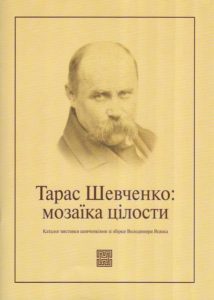 Taras Shevchenko, A Mosaic. Catalogue of the Shevchenkiana Collection of Volodymyr Iatsiuk, Kyiv, 2012;
Taras Shevchenko, A Mosaic. Catalogue of the Shevchenkiana Collection of Volodymyr Iatsiuk, Kyiv, 2012;
Тарас Шевченко: мозаїка цілости. Каталог виставки шевченкіяни зі збірки Володимира Яцюка (2012; НТШ-А, Інститут джерелознавства НТШ-А)
2013
Haidamaky, a three volume edition containing: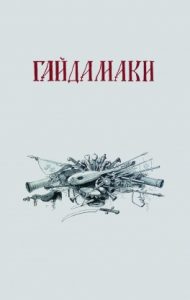
Taras Shevchenko, Haidamaky, the Poem (a facsimile edition of the 1841 publication); Hryhorii Hrabovych [George G. Grabowicz], Shevchenko’s Haidamaky: The Poem and its Critical Reception; Oles Fedoruk, The First Edition of Shevchenko’s Haidamaky: The History Of the Book; Kyiv, 2013
Гайдамаки:
Тарас Шевченко, Гайдамаки: Поема (факсиміле видання 1841 року)
Григорій Грабович, Шевченкові «Гайдамаки»: Поема і критика; Олесь Федорук, Перше видання Шевченкових «Гайдамаків»: Історія книжки (2013; НТШ-А, Інститут джерелознавства НТШ-А);
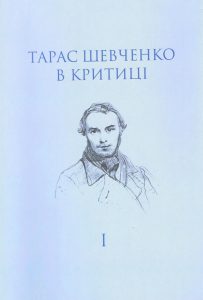 Taras Shevchenko, The Critical Reception; vol. 1: The Contemporary Reception (1839-1861), Kyiv 2013;
Taras Shevchenko, The Critical Reception; vol. 1: The Contemporary Reception (1839-1861), Kyiv 2013;
Тарас Шевченко в критиці, том I: Прижиттєва критика (1839–1861) (2013; НТШ-А, Інститут джерелознавства НТШ-А)
2015
Stanislav Rosovec’kyi, Shevchenko and folklore, Kyiv, 2015;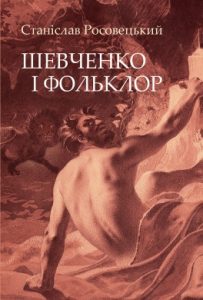
Станіслав Росовецький, Шевченко і фольклор (НТШ-А, Інститут джерелознавства НТШ-А, HURI)
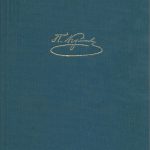 Panteleimon Kulish, Complete Edition, Scholarly and Publicistic Works, Vol. III, Zapiski o iuzhnoi Rusi [Notes Concerning Southern Rus’], Books 1 and 2;
Panteleimon Kulish, Complete Edition, Scholarly and Publicistic Works, Vol. III, Zapiski o iuzhnoi Rusi [Notes Concerning Southern Rus’], Books 1 and 2;
Пантелеймон Куліш, Повне зібрання творів: Наукові праці. Публіцистика. Т. ІІІ: Записки о Южной Руси, книга 1 і 2 (НТШ-А, Інститут джерелознавства НТШ-А, HURI)
2016
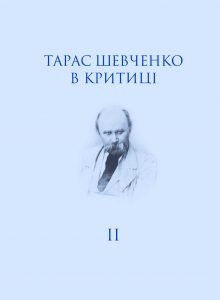 Taras Shevchenko, The Critical Reception; vol 2: the Posthumous Reception (1861), Kyiv 2017;
Taras Shevchenko, The Critical Reception; vol 2: the Posthumous Reception (1861), Kyiv 2017;
Тарас Шевченко в критиці, том ІІ: Посмертна критика (1861)
(2016; НТШ-А, Інститут джерелознавства НТШ-А)
2017
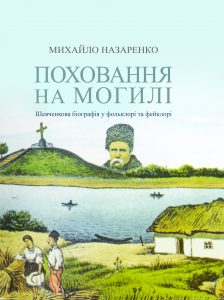 Mykhailo Nazarenko, Buried on a Mound: Shevchenko in Folklore and Fakelore, Kyiv, 2017;
Mykhailo Nazarenko, Buried on a Mound: Shevchenko in Folklore and Fakelore, Kyiv, 2017;
Михайло Назаренко, Поховання на могилі: Шевченкова біографія у фольклорі та фейклорі
(2017 [2-ге вид.]; НТШ-А, Інститут джерелознавства НТШ-А, HURI)
